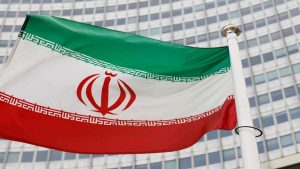The President of the African Development Bank has called on the United States to up its investment game in Africa as he made the case for the world’s largest economy to look beyond traditional sectors on the continent.
Akinwumi Adesina was speaking in New York at an event that brought together investors and business practitioners for a roundtable discussion titled ‘A New Economic Vision for Africa’.
He called for Africa to be looked through a different lens while making the case for agriculture on the continent to be seen as a mega-sector of the future.
Speaking later to SABC News, he also addressed the low-growth trap currently being experienced in both South Africa and Nigeria.
Akinwumi Adesina told his audience that Africa should no longer be seen as a museum of poverty – rather a continent that will be driving global growth going forward.
“If you’re looking for where to be, that’s the place to be because of the population, because of rising consumer demand and just because of the sheer size of what the African economy will look like with the continental free trade area that brings together economies worth $3.3-trillion, who wouldn’t be excited about that?”
Two-way trade between Africa and the United States stood at $39-billion in 2017; between Africa and China that number rises to a whopping $204-billion in 2018, with calls for a rethink in the world’s largest economy.
“I would like everyone to look at Africa with a different lens, different lenses, not from the lenses of development. Africa, of course, like every part of the world still has a lot of development challenges, but when I look at what we have – 65% of all the agricultural, arable land left to feed 9-billion people in the world by 2050, it’s not in the United States, it’s not in Europe, it’s not in Latin America or Asia, it’s in Africa. What Africa does with that agriculture is going to determine the future of food in the world. So the key is to look at Africa as an investment destination, not necessarily as a development destination.”
He explained that there was a lot of scope for investment in regional connectivity infrastructure development, particularly to give support to the African Continental Free Trade Area; in ICT and international services. But it’s agriculture that he argues should be a powerhouse sector throughout the continent. The bank itself has invested $24-billion over 10-years in business-minded agriculture development.
“Africa is not tapping its agriculture (potential) at all, I don’t think it is. If you take a look at the Netherlands, what does the Netherlands have? The Netherlands has agriculture, look at them; they’re a global powerhouse in the world. When it comes to agriculture, for far too long we’ve been looking at agriculture as a way of life. We all came from rural areas, we look at it as some kind of development, social sector, I’m sorry it’s not. Agriculture is a business. By the year 2030 on the continent, the size of the food and agricultural business is going to be worth a whopping $1-trillion so if we’re going to take millions of people out of poverty, we’ve got to turn agriculture into a mega-sector that works for everybody.”
He called Nigeria and South Africa two critical powerhouses on the continent that have lagged in growth due to structural and other impediments that need reliable and stable electricity as a basis to grow. With the bank a major investor in Eskom, we asked President Adesina about its unbundling.
“That’s the government’s decision, I can only speak from the perspective of lessons from other parts of the world, I think parts of the world also say Monopolies are not efficient, monopolies also cost a lot of money. It’s difficult politically obviously because the issues that have to be done, but I think what the government is doing is the right thing – unbundling the power generation, the power transmission from the power distribution. You get more efficient individual entities. At the end of the day, people talk about whether tariffs will go up – sometimes the higher tariffs is simply an indication of the transfer of inefficiency costs on customers.”
He expressed confidence in the changes underway at the utility and for the leadership of the country to pull a Tiger Woods-type turnaround moving forward.






